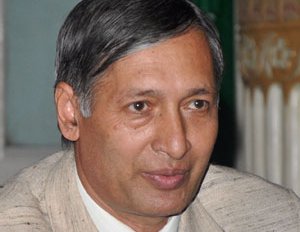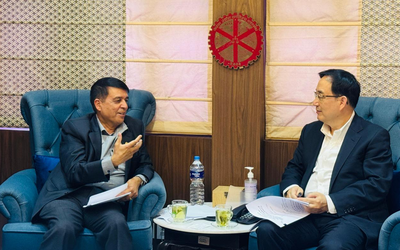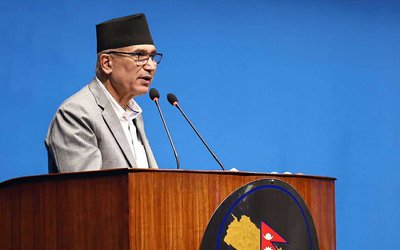
Nepal's financial sector has gone through a very strange situation. With just a dozen of commercial banks and dozens of development and financial institutions, there are now over 200 financial institutions which, one or the other way, have been facing financial problems.
After successful merger of NIC AND Bank of Asia Bank and recently merged Mankaman Development Bank Yeti Finance and Valley finance, Civil Bank, Axis Bank and Civil Merchant Bank have announced the process of merger.
Civil Bank Limited, Axis Development Bank Limited and Civil Merchant Finance Company Limited have signed a memorandum of understanding (MoU) for merger. According to a press statement, Ichcha Raj Tamang, chairperson of Civil Bank, Bidur Dhamala, chairperson of Axis Development Bank and Arun Raj Shrestha, director of Civil Merchant Finance Company signed the agreement.
They agreed that the name of the bank will remain Civil Bank Limited after the merger. According to the statement, the paid-up capital of Civil Bank is Rs 2 billion, that of Axis Development Bank and Civil Merchant Finance Company are is Rs 718.1 million and Rs 166.5 million, respectively.
In the name of liberalization, a number of financial institutions opened in Nepal. In many cases, the same family owns the bank as well as the industry. Civil Bank Limited, which is the main promoter of Civil Home, has made a lot of investment in the housing sector. The Axis Development Bank and Civil Merchant have also no different stories.
Following a severe cash crunch, Vibor Development Bank merged with Bhajuranta Finance a year ago and Vibor Development Bank and Kist Bank is in the final process of merger.
At a time when Nepali financial sector has been passing though a crucial period, the World Bank and International Monetary Fund is taking Financial Sector Assessment Program, undertaken by the World Bank and International Monetary Fund, between November 2013 and February 2014.
In the last 15 to 18 years, Nepal has got bitter experiences of how instability in the financial sector can impose huge costs on the real economy. The World Bank and IMF team will look at the financial sector of every country. They have developed a pretty robust set of tools to conduct stress tests, assess banks, test internal control system to assess capital adequacy, and their capacity to handle and identify risks. It will be helpful as it will point out any issue that exists in the financial system including underlying asset quality.
"The financial sector is apparently weak in Nepal. The level of non-performing assets is actually higher than what is being reported. There is ever greening of loans — borrowers are taking loans to pay for loans taken earlier. The regulator has to strongly supervise the banking sector to prevent any failure. If there is a lack of trust in the banking sector, people will withdraw their savings and there will be no money to lend to businesses. Moreover, it is unusual to have so many deposit taking institutions — 200 licensed financial institutions, cooperatives and more. NRB has a huge task to supervise and regulate all these institutions which is difficult."
Consolidation and mergers are good but you have to merge financial institutions that are good matches like ones with different sets of assets and skills and when you put them together a stronger institution is created. On the other hand, if you are merging a bad one with an okay one you might end up with one bigger insolvent bank. Make sure that the resulting one is stronger because banks going under are very bad with people losing their savings, they advise.

Debesh Adhikari
Adhikari is a computer science student and writes on various contemporary issues.
- The UK Expressed Deep Concerned About Tensions in Nepal
- Mar 09, 2017
- Development Partners and Ministry of Education Agree to drive quality education
- Sep 28, 2016
- END HUNGERNepal plans to end hunger by 2025
- Mar 14, 2016
- UK Hopes For Inclusive Resolution For Nepal
- Sep 17, 2015
- Micromax Launches Bolt D320 For Nepali Market
- Aug 07, 2015















